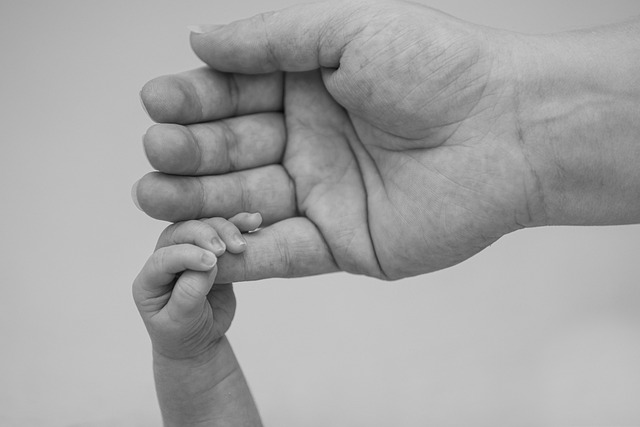In family mediation, open dialogue is a powerful tool for successful resolutions, fostering trust and strengthening familial bonds. Creating a safe space with active listening and non-judgmental attitudes ensures honest expression. Techniques like paraphrasing, confidentiality, and impartiality enhance trust, enabling couples to explore issues, uncover emotions, and find shared goals. Mediation facilitates effective communication, conflict resolution, and resilience in family relationships, making it an indispensable tool for maintaining strong familial connections over time. (SEO keywords: mediation for families)
Building trust is paramount in family mediation, and open, honest dialogue is the cornerstone of successful outcomes. This article explores the transformative power of communication in fostering healthier family relationships. We’ll delve into strategies for creating safe spaces, techniques to enhance trust, and the long-term benefits of transparent conversations during mediation sessions. Discover how empowering families to express themselves openly can lead to lasting resolutions, strengthening bonds rather than weakening them.
Understanding the Power of Open Dialogue in Family Mediation
In the realm of family mediation, open and honest dialogue is a powerful tool that can significantly enhance the resolution process. When couples face challenges in their relationships, engaging in transparent conversations allows them to navigate complex issues with empathy and understanding. This approach, at its core, fosters an environment where both parties feel heard, validated, and respected, which is crucial for building trust.
During mediation for families, encouraging open dialogue enables deep exploration of underlying problems. It helps uncover hidden emotions, address misunderstandings, and identify shared goals. By creating a safe space for expression, mediators facilitate a constructive exchange that can lead to meaningful compromises. This method not only facilitates agreement but also strengthens the familial bond, laying the groundwork for lasting reconciliation and cooperation.
Creating a Safe and Supportive Environment for Honest Conversations
Creating a safe and supportive environment is key to fostering open and honest dialogue, especially within families. This means establishing a space where every member feels heard, respected, and free from judgment. In the context of mediation for families, the mediator plays a crucial role in setting this foundation. They encourage active listening, ensuring that each person’s perspective is valued and considered. By promoting non-judgmental attitudes, family members can feel secure to express their thoughts and emotions honestly.
A supportive environment involves creating ground rules that prioritize fairness and equality. This includes allowing everyone to contribute without interruption, maintaining confidentiality, and respecting personal boundaries. When family members trust that their privacy is protected and their voices are amplified, they’re more likely to engage in meaningful conversations, leading to a stronger bond and deeper understanding among family members.
Techniques to Foster Trust and Transparency During Mediation Sessions
During mediation sessions, fostering trust and transparency is vital for successful outcomes, especially in family-oriented mediations. Mediators should encourage open communication by creating a safe and non-judgmental environment where each party feels heard and respected. Active listening techniques, such as paraphrasing and summarizing statements, help demonstrate understanding and build rapport.
Additionally, mediators can employ strategies like using clear and concise language, ensuring confidentiality, and maintaining impartiality to enhance trust. Regularly seeking feedback from all involved parties and addressing concerns promptly further strengthens transparency. These techniques not only facilitate honest dialogue but also encourage collaborative problem-solving in mediation for families.
The Impact of Open Communication on Long-Term Family Relationships
Open and honest dialogue is the cornerstone of any strong relationship, particularly within families. When family members engage in frequent, transparent communication, it strengthens their bonds and fosters an environment of trust and understanding. This is especially significant for long-term relationships, as it allows each member to express their thoughts, feelings, and concerns without fear of judgment or misunderstanding. Such openness enables the resolution of conflicts, promotes empathy, and ensures everyone feels heard and valued.
In the context of family dynamics, mediation for families can be a powerful tool to enhance communication. Professional mediators can facilitate conversations that encourage active listening, clear expression, and mutual respect. This process helps family members navigate sensitive topics, work through disagreements, and find common ground. By learning to communicate openly and effectively, families can build resilience against external challenges and internal strife, ensuring their relationships remain strong over time.
Open dialogue is a powerful tool in family mediation, fostering trust and strengthening relationships. By creating safe spaces for honest conversations, mediators can help families navigate complex issues with transparency. Techniques such as active listening, clear communication, and structured discussions ensure that all parties feel heard and respected. The impact of this approach extends beyond the mediation sessions, promoting healthier, more open family dynamics in the long term. Effective communication is key to successful mediation for families, enabling them to resolve conflicts and build lasting connections.
